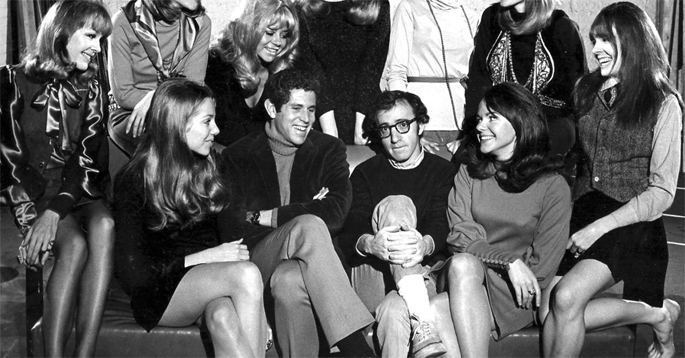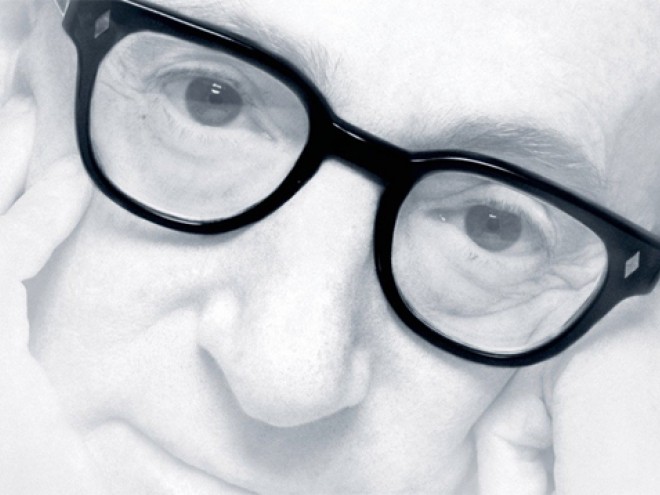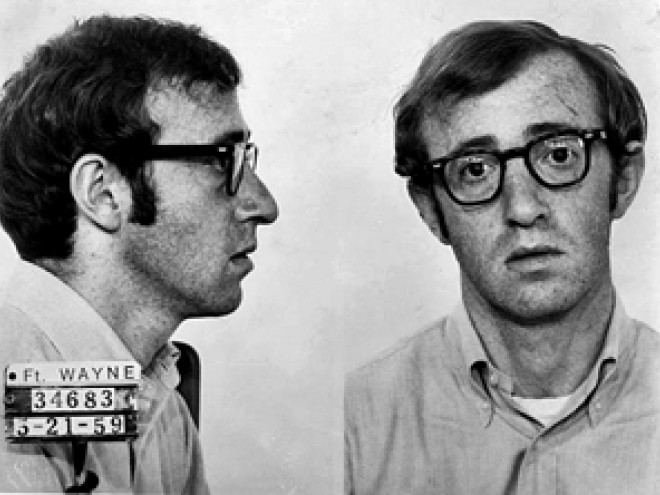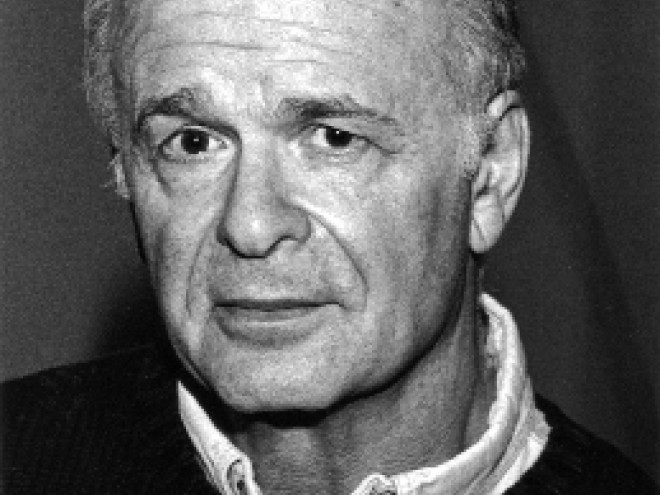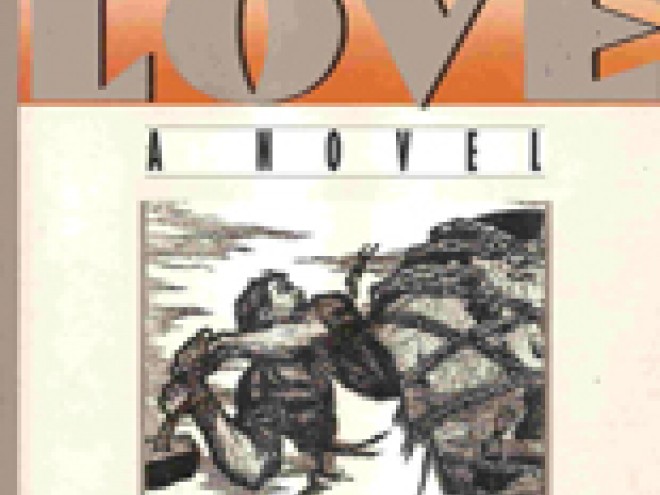Earlier this week, David Evanier shared what he learned about Woody Allen while writing an unofficial biography of the comedian and director. He is blogging here all week as part of the Visiting Scribe series on The ProsenPeople.
Here’s the kind of discovery that biographers love: Woody Allen’s boyhood pal Jerry Epstein, now a psychiatrist and author, told me that Woody’s birthday is not really December 1; it is November 30. “But Woody wanted to be Number One,” Epstein said.
Allen was never tempted to sell out or to try to outdo himself, and he didn’t care to ingratiate himself with the mainstream. Right from the beginning he had total artistic control of his work. And he has always walked away from what became stale for him. He walked away from standup comedy, from TV writing, from talk show, game shows, nightclubs, concert halls, variety shows and mainstream success.
So we are talking about enormous inner strength and self-belief. He was uncertain in his personal life, but he was not shy or uncertain about his art. He is the most identifiable, brazen, and forthright Jewish artist in the world, insistently reminding his viewers about the Holocaust in many of his films. Jewish Hollywood, with many of its moguls refugees from Hitler, had been reluctant to place Jewish actors in leading roles. Maurice Schwartz of the Yiddish Art Theater was cast as the Native American Geronimo; John Garfield and Paul Muni played Italians. But times were changing, with the ascendency of comics Mort Sahl, Lennie Bruce, Shelley Bergman, and Nichols and May. By 1967 films with Jewish content and Jewish stars had emerged in The Graduate (Dustin Hoffman); Sidney Lumet’s The Pawnbroker, Lumet’s comedy, Bye Bye Braverman, starring a new Jewish leading man, George Segal; Mel Brooks’s The Producers, and many more, culminating with Barbra Streisand in 1973 in The Way We Were. Arthur Krim and Eric Pleskow, heads of United Artists, gave Allen a blank check and he returned the favor by giving the company enormous prestige and highly successful films.
But the Holocaust was never far from Allen’s mind. “Since the Holocaust was such an immense event in my life,” he wrote me, “it couldn’t help but wind up as a sporadic or even frequent issue in my work. There are certain crimes that are simply unforgivable.”
I finally visited Allen at his cozy, very lived-in, dark-hued office with its rust and brown couches. He greeted me warmly. I found innocence, curiosity, intensity, total responsiveness, and deep emotion in him. He was nearly eighty, yet he had the youthfulness of the committed artist who cannot wait to get back to his work.
We talked about Israel, about antisemitism (including its masked permutation, anti-Zionism) and about the Holocaust. “It can happen in a minute,” he said. He talked of Lucy Dawidowicz’s The War Against the Jews, of Victor Klemperer’s diaries of life in Nazi Germany, of Michael Thomas, a resister to Nazism he’d known, of Rossellini’s Il Generale Della Rovere. We talked about our parallel histories: the thrilling double bills of classics at the original Thalia Theater, of Brooklyn, typewriters and the internet — ”How can kids watch Citizen Kane on that tiny screen?” — and about the Laff Movie on 42nd Street that played Chaplin, Laurel and Hardy, and Buster Keaton 24 hours a day, and, next door to it, the Horn and Hardart Automat. (I mentioned the mashed potatoes and creamed spinach. “What about the baked macaroni?” he asked. My father had taken me to both places, as Woody’s father had taken him.) We talked about the decline of nightclubs, how they had their curious moments — such as John Carradine reading Shakespeare at the Blue Angel nightclub — and he spoke with admiration of Nichols and May, Mort Sahl, and nightclub impresario Max Gordon, who gave him an early break at the Blue Angel.
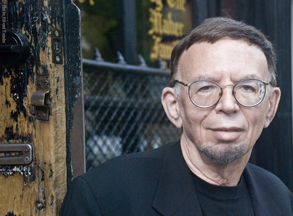 I asked him what was his greatest joy in life. His face became radiant. “My marriage to Soon-Yi. And my children.” I gave him a copy of my novel, The Great Kisser, and he said he would take it with him to read on the plane to Cannes. He did, and wrote me about it within a week.
I asked him what was his greatest joy in life. His face became radiant. “My marriage to Soon-Yi. And my children.” I gave him a copy of my novel, The Great Kisser, and he said he would take it with him to read on the plane to Cannes. He did, and wrote me about it within a week.
All the time we thought he was a neurotic mess, Woody Allen was playing the ultimate magic trick on us. Broken, needy, an impractical dreamer, a schlemiel on-screen, in life he was the artist who kept going, was never destroyed, who got it all.
David Evanier was the founding editor of the literary magazine Event and the former fiction editor of The Paris Review. Now publishing his eighth book, he has received the Aga Khan Fiction Prize and the McGinnis-Ritchie Short Fiction Award.
Related Content:
- Reading List: Jews and Cinema
- Joshua Max Feldman: The Jewish Hall of Fame
- Emily Stone: Six Degrees of Kevin’s Bacon: Who’s Jewish In Hollywood?
David Evanier has published eight books and has received the Aga Khan Fiction Prize and the McGinnis-Ritchie Short Fiction Award. He was the founding editor of the literary magazine, Event, and the former fiction editor of The Paris Review. Read more about David Evanier here.
2013
The Best Overlooked American Jewish Novelist
